TL;DR: The top six things I’ve noted around housing, climate and poverty in Aotearoa’s political economy in the last day are:
Two former directors of Te Whatu Ora-Health NZ have publicly accused PM Christopher Luxon of trying to mislead the public over the merged entity’s finances, including one who worked as an executive with him at Air NZ and a former Medical Council chair. Also, another former Health NZ director was anonymously scathing this morning, calling Luxon’s comments about directors not knowing the organisation’s financial details as “completely baseless”;
A global survey of construction companies was published today showing New Zealand’s builders were the world’s most depressed in the just-completed June quarter because of the new National-ACT-NZ First Coalition Government cancellations of multiple construction projects and spending cutbacks;
In solutions news, Te Pāti Māori is proposing a new law to make Waitangi Tribunal rulings binding on The Crown. Meanwhile, Ngāti Whātua Orākei, one of the recipients of historic treaty settlments after Tribunal findings, launched plans to build Aotearoa’s tallest building and create an investment exchange for other iwi to invest capital in projects across Tāmaki Makaurau;
A major new study has found an acceleration in methane levels globally in the last 20 years, driven partly by a rise in emissions from wetlands heated up by previous global warming. The study’s authors warned this feedback loop created a risk of much-faster climate change and called for immediate and massive reductions of methane levels from pastoral agriculture as the fastest and cheapest way to reduce the immediate heating effects of methane;
In quote of the day, a social investment expert has called for the abandonment of the new Government’s plan to pull Treaty provisions out of the Oranga Tamariki Act, known as 7AA, arguing leaving the provisions would save the Government money in the long run, let alone prevent social harm in the short term; and,
In climate graphic of the day, Fresh data collected in the last week shows global ice levels hit record lows for this time of the year, consistent with global temperatures accelerating faster than expected past 1.5 degrees over pre-industrial levels.
(Full paying subscribers can see and hear more detail, analysis and commentary in my podcast above and below the paywall fold. They also have access to my daily Pick ‘n’ Mix of links elsewhere and The Kākā’s daily Journal of Record below. If we get more than 100 likes, we open these articles up for full public access and sharing online.)
Top Six Things to note on Thursday, August 1:
1. Directors accuse PM of ‘disinformation’ on financials
Two former Te Whatu Ora-Health NZ directors until the end of June, former Medical Council Chair Dr Curtis Walker and professional director Vanessa Stoddart, have accused PM Christopher Luxon of disinformation and misinformation respectively with his comments on Monday that Health NZ’s directors didn’t know the organisation’s financials and weren’t asking the right questions.
Another former director anonymously accused Luxon of making “completely baseless” comments about what the directors knew and when.
The first comments emerged late on Tuesday from Dr Walker, a kidney specialist and former Medical Council Chair. He was quoted by NZ Doctor’s Martin Johnson as saying the accusation was a “casus belli,” and “an excuse to put a commissioner in, which I don’t think was warranted.” He added:
“It’s interesting that as the political pressure has come on the Government and the prime minister, they have sought to up the ante on their disinformation frankly. And they’ve got it wrong as was shown, for example, by the ’14 layers of management’ comment.
“They haven’t got their facts straight and they weren’t sitting around the board table and they also don’t work in the front line of the health service like I do.
“As the political pressure has come on the Government, they have been increasingly desperate in casting about for misinformation.” Dr Walker via NZ Doctor
Dr Walker made further comments in this front-page article in NZ Herald-$$$ this morning by Isaac Davison and Adam Pearse:
“I think it’s inaccurate that the board’s financially illiterate. And I disagree that the board lacked financial skills and oversight. All of the questions that are being asked now publicly were asked around the board table of the management.
“You might argue with a few senior clinicians coming off the board that it might now be seen as clinically illiterate.” Dr Walker via NZ Herald-$$$
Former Health NZ board member Vanessa Stoddart was also quoted in the NZ Herald article as saying she was disappointed by the “personal comments” made by the Luxon, but noted “blame and misinformation would not fix the health system.”
She said the deficit was largely a result of “unbudgeted recruitment of nurses”, which needed to be funded by reducing non-frontline roles or overtime levels.
Stoddart is also currently on the boards of major private sector companies Waste Management NZ and Channel Infrastructure and was a board member of the Financial Markets Authority for seven years until March this year. She was Group GM for Technical Operations and People at Air NZ for nine years until January 2013, which meant she worked with Christopher Luxon, who was first Group GM International Airline from May 2011 to the end of 2012, before becoming CEO.
‘Baseless comments by Luxon absolutely refuted’
Dr Walker agreed with comments by Stoddart and Health NZ CEO Margie Apa that a big factor was being over-budget on the number of nurses employed.
“That’s pay settlements, pay equity and that’s before you even get on to the really important stuff like pay parity with primary care and the community sector.” Dr Walker
Another former Health NZ board member commented anonymously in the NZ Herald article, saying he “absolutely refuted” the PM’s comments.
“I feel that it’s completely baseless. He (Luxon) doesn’t know the reports we were getting, or the discussions we were having. He or ministers haven’t taken time to speak to the board about the issues.” Former board member.
Luxon did not directly respond to questions from reporters in Parliament about Walker's rebuttal.
"What I say is, I am here to deliver better health outcomes for New Zealanders, and I am ruthlessly focussed on that, and I am making sure that going forward, I am doing everything I can to improve the governance of Health New Zealand."
When asked whether his claims about the directors being ‘financially illiterate,’ he said: "I expect results, I expect governance and boards to understand what's going on in those entities."
Luxon comments were surprising, also given one of the directors is Naomi Ferguson, who ran IRD for a decade. Benedict Collins of 1News (video below) also cited leaked board emails pushing back at the Government’s claims.
2. New Government’s funding freeze slams building sector
NZ construction sector most depressed in the world in June quarter
The Royal Institution of Chartered Surveyors (RICS) Global Monitor survey of activity and expectations in the construction sectors of the world’s major markets reported this morning its June quarter survey found New Zealand’s construction sector was the most depressed since the survey started and was the most depressed in the world. Respondents cited poor demand and credit availability.
Here’s how RICS described New Zealand in its global news release (bolding mine):
“The RICS quarterly monitor paints the picture of a global construction sector in recovery. Some impediments remain in terms of build costs, finance and skills shortages, but most key markets are ticking-over with modest but positive growth driven in large part by infrastructure projects.
“New Zealand stands out for remaining decidedly downbeat. Expected workloads over the coming twelve months are the lowest in the world. Alongside China, they have been the lowest in the world over the past three months. It should come as no surprise therefore that headcounts are down over the past quarter and anticipated to fall further.
“Respondents to the monitor cited continued challenges with high inflation, high interest rates, high competition and the change in Government in October 2023 which has resulted in cuts, delays and policy change. Jones Lang LaSalle Head of Strategic Advisory, Government and Public Sector, Jonathan Manns.
The survey report included the following verbatim comments from New Zealand and their location, with more than half citing the change of Government:
‘Major changes in central & local government policy. Lack of funding.’ - Auckland ‘Government and interest rate levels.’ - Auckland
‘Change in Government and priorities have delayed and postponed infrastructure projects which has impacted in certainty in the construction market.’ - Auckland
‘Change in government has slowed down / stalled climate policy change.’ - Christchurch
‘Cuts by the new government impacting public sector and economy.’ - Christchurch
‘Change of government in Q3 2023 has halted many projects, the market is holding off on investment while waiting for government decisions. Increased interest costs and mortgage costs have negatively impacted housing developments and some long-standing developers have ceased trading.’ - Hamilton
‘Competition and general lull in business driving prices down and making some tenders financially risky or impossible. New government changes, funding pulled in schools and the public sector. Private industry being tight.’ - Hamilton
3. ‘Slash methane now try to stop feedback loop’
Major study finds methane a major warming culprit, and worsening
A major new study published yesterday in Science found methane emissions increases in the post-industrial era are responsible for around 65% as much warming as carbon dioxide has caused to date, and large reductions in methane emissions are required to limit global warming to 1.5°C or 2°C. It noted a warming climate was most likely the reason for a sharp increase in methane emissions from wetlands and pleaded for immediate and massive reductions in man-made methane emissions, starting with sheep, beef and dairy farming on pasture.
Here’s the key points from the paper (bolding mine):
The atmospheric methane growth rates of the 2020s far exceed the latest baseline projections; methane emissions need to drop rapidly (as do CO2emissions) to limit global warming to 1.5°C or 2°C.
The abrupt and rapid increase in methane growth rates in the early 2020s is likely attributable largely to the response of wetlands to warming with additional contributions from fossil fuel use, in both cases implying that anthropogenic emissions must decrease more than expected to reach a given warming goal.
Rapid reductions in methane emissions this decade are essential to slowing warming in the near future, limiting overshoot by the middle of the century and keeping low-warming carbon budgets within reach.
Methane and CO2 mitigation are linked, as land area requirements to reach net zero CO2 are about 50–100 million ha per GtCO2 removal via bioenergy with carbon capture and storage or afforestation; reduced pasture is the most common source of land in low-warming scenarios.
Strong, rapid, and sustained methane emission reduction is part of the broader climate mitigation agenda and complementary to targets for CO2 and other long-lived greenhouse gases, but a net zero target specifically for methane is neither necessary nor plausible.
Many mitigation costs are low relative to real-world financial instruments and very low compared with methane damage estimates, but legally binding regulations and widespread pricing are needed to encourage the uptake of even negative cost options.
4. Solutions: Ngāti Whātua launches investment exchange
Ngāti Whātua Ōrākei, which has built up a property portfolio across Tāmaki Makaurau worth over $1.5 billion, last night announced plans to build Aotearoa’s highest skyscraper on the current site of the Downtown Carpark with Precinct Properties, the listed NZX-listed company that owns and runs the adjacent Commercial Bay complex.
Ngāti Whatua also announced would also launch an investment platform, Te Tomokanga ki Tāmaki, for other iwi to invest in similar projects across the city. Its first investment opportunity would be the redevelopment of the Downtown Carpark site into a 56-storey complex that would be the highest full building, other than the SkyCity spire.
“As tangata whenua and iwi of the Waitematā, Ngāti Whātua Ōrākei holds a deep responsibility to manaaki, to care for and uplift our own people and the people living in Tāmaki. Through Te Tomokanga ki Tāmaki, we are creating pathways for joint iwi investment, sharing in the economic prosperity of Tāmaki Makaurau, Aotearoa's economic powerhouse to achieve our shared purpose.
“We’re excited to work in partnership with Precinct Properties to facilitate iwi investment into the redevelopment of this site. This iconic and generation-defining development is a remarkable opportunity to launch Te Tomokanga ki Tāmaki,” Ngāti Whatua Deputy Chair Ngarimu Blair said in the news release.
In my view, perhaps the politicians currently fighting to strip Treaty provisions from various pieces of legislation should look at how some the fruits of Waitangi Tribunal work are now transforming our cities and generating wealth for all. Auckland, Hamilton and Christchurch are all now thriving thanks to investments by Ngāti Whatua, Tainui and Ngai Tāhu, just as one example of partnerships at scale.
5. Quote of the day
‘Leave 7AA in to save everyone money, let alone the social pain’
“If we look at it purely from an economic standpoint, the retention of 7AA will result in fiscal and economic benefit.
“The cost of remediating damaged adults is significantly higher than the cost of not causing the damage in the first place with children.” Social investment expert, Habilis MD Kent Duston via RNZ’s Lillian Hanley in this article: ‘Removal of 7AA could lead to higher costs for the state, consultant says’
6. Climate chart of the day
Global sea ice hits record lows for this time of year. Ever.
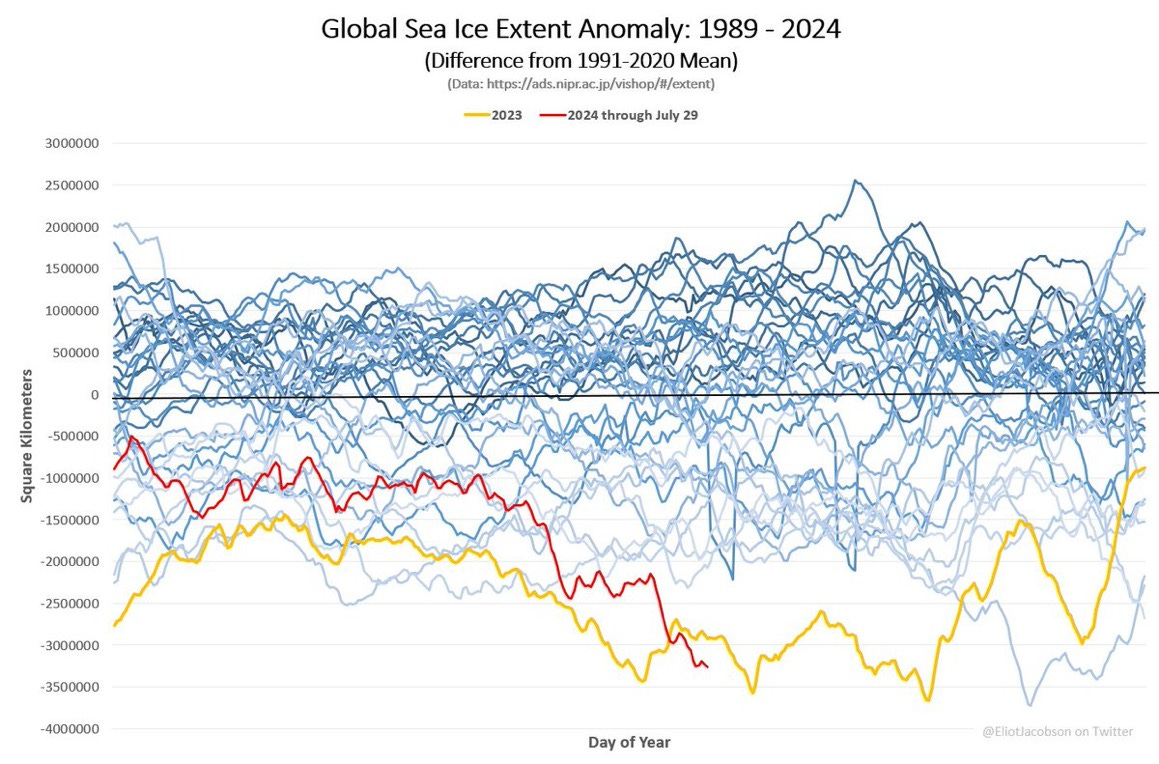
The best of the rest
News and opinion elsewhere on August 1
Here’s my Pick ‘n’ Mix of the top six news, analysis, deep-dive and opinion links elsewhere as of 9:00 am on Thursday, August 1:
Scoop: Christopher Luxon to cash in on capital gains. The PM has found success in a very Kiwi investment strategy: buying rental properties. But after riding more than a decade of market gains, he’s moving to sell. The Post-$$$’s Thomas Manch
Deep Dive: New CO2 record at Wellington station RNZ’s Kate Newton
Scoop: Health NZ apologises after nurse graduate job offers retracted NZ Herald
Investigation: The mysterious and quiet closure of a once loud, proud charity. A high-profile social services agency that attracted millions in government funding has gone under. What went wrong? Stuff’s Paula Penfold
Explainer: Where have all the doctors gone? A lack of doctors to cover shifts at Dargaville Hospital is just the tip of the iceberg. How did NZ's hospitals get to this point? 1News’ Anna Murray
Scoop: Government wants ‘line by line’ review of council spending and floats asset sales NZ Herald-$$$’s Thomas Coughlan
The Kākā’s Journal of Record for August 1
Here’s the top six announcements, reports, news conferences, statistics & surveys in the last day to 9:00 am on Thursday, August 1:
Climate & Housing: Local Government NZ released a report it commissioned from NZIER that found Government policies imposed unfunded costs on councils mounting to at least tens of millions of dollars each year. The report shows councils absorbed the cost of reforms by reducing service delivery and increasing rates. News: RNZ, The Post
Economy: ANZ’s business confidence survey found a rebound from a low base in July, although employment is down compared to last July in every sector measured.
Housing: Stats NZ's latest data finds that home building consents are down 24% this year, to levels last seen five years ago. Home consents in Wellington fell 69%, driven by a decrease in apartments. News: RNZ, NZ Herald, Interest
Costs of living: Electric Kiwi launched a virtual mobile phone service based on 2Degrees that it said addressed the problem of wasted data worth $400 million a year. The Kiwi Mobile service allows customers to only pay for data they use.
Housing: CoreLogic reported housing values fell in July for the fifth month in a row, with the median value now $827,515. CoreLogic’s Kelvin Davidson said a pipeline of new townhouses in Auckland will "keep a lid on" its property values.
People moves: Wellington City Council's chief executive Barbara McKerrow announced she will finish her five-year term on 1 March 2025. News: The Post
And finally, some fun things
Cartoon of the day: Low jumper
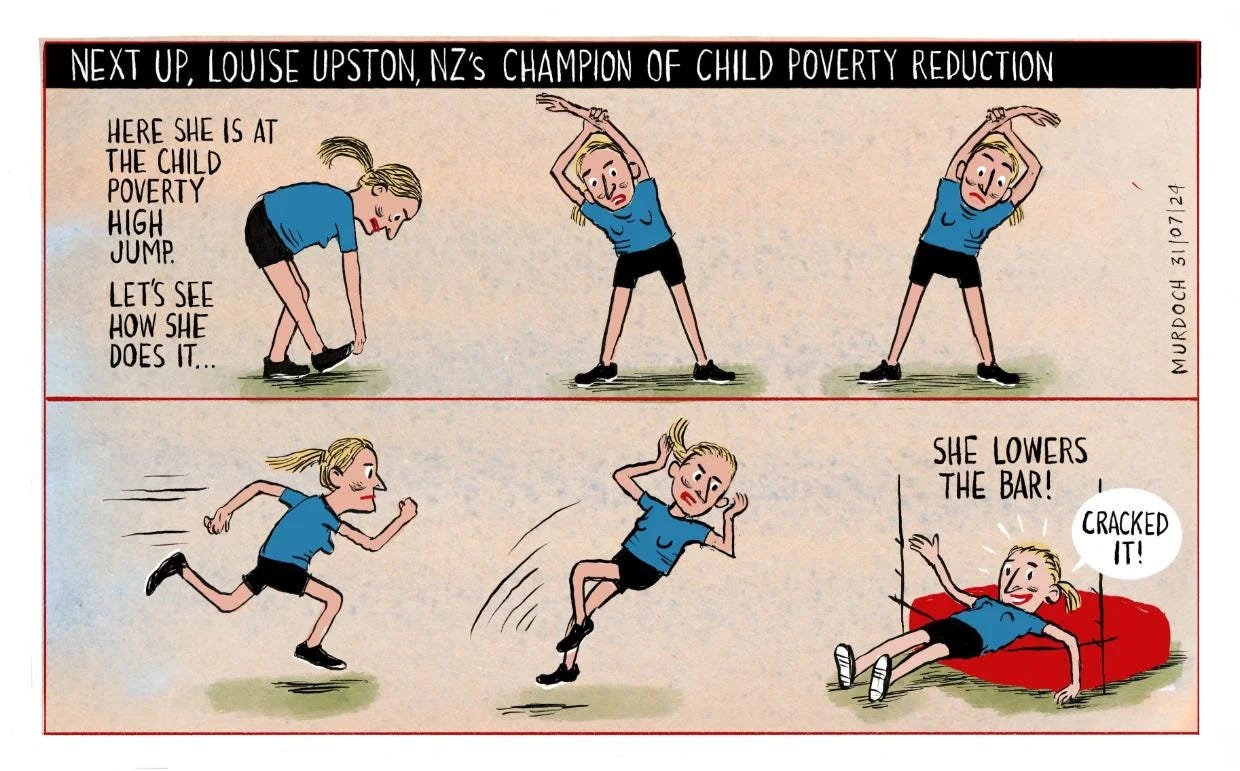
Timeline-cleansing nature pic
A rarity chowing down

Mā te wa
Bernard

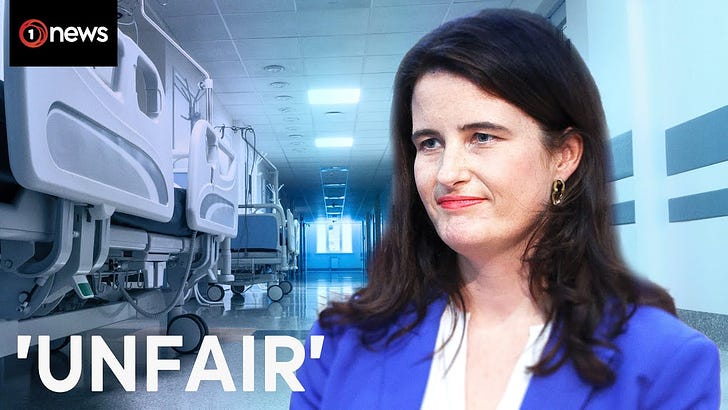

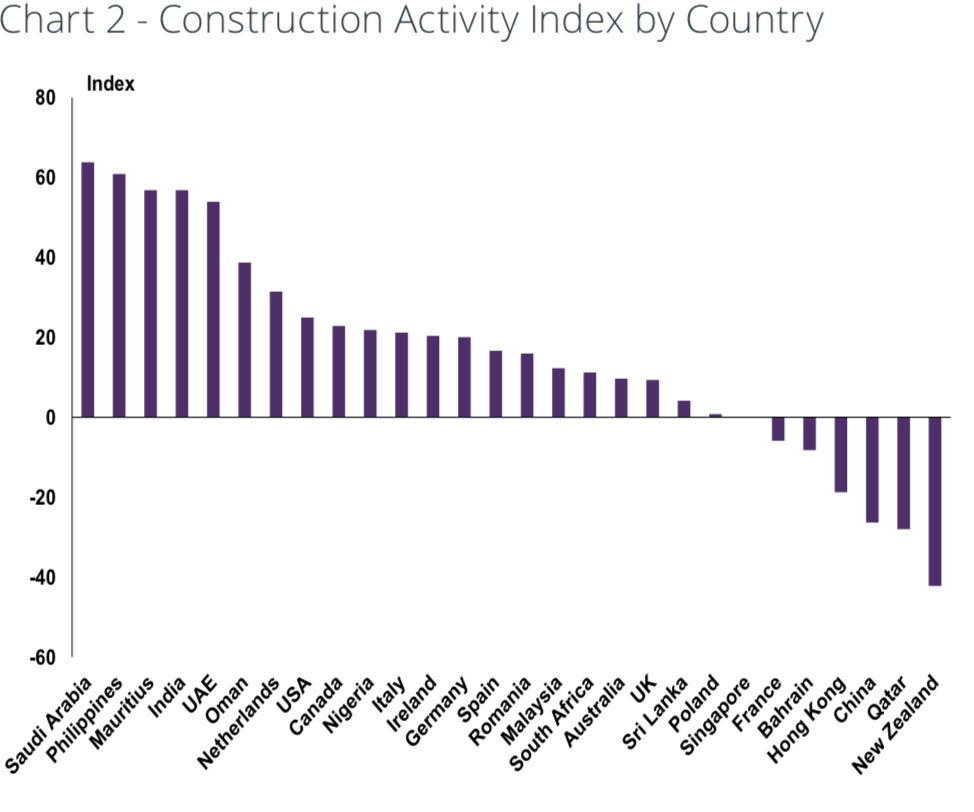
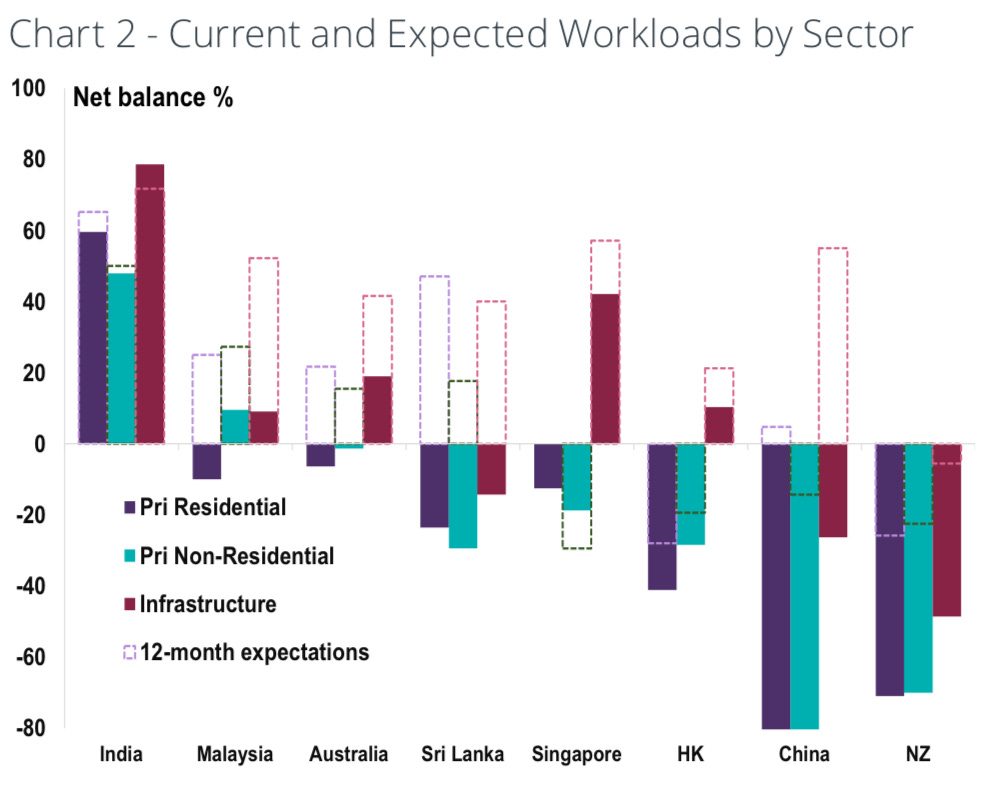








Share this post